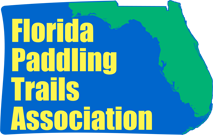CT - Segment 2 (Alternate) Paddles
Navarre to Point Washington
All Maps and Info Sheets are downloadable and printable in an 8.5 X 11" format.
Download and Print Instructions:
Maps: To print out maps in full size, please left click on map below to pull up full size map, then right click on full size map and choose “Save Image As”. Save to your desktop or designated folder. Print from there.
Logistics Information: This map set is provided for in planning for paddling the Circumnavigational Trail (CT) and should be used in conjunction with the Florida Circumnavigational Saltwater Paddling Trail Guide (Text Only) and the OGT CT Updates page. For planning information on boat ramps, water/food resources, bathroom facilities, points of interest, alternate campsites or accommodations, etc., please refer to the Trail Guide (Text Only).
KMZ: To download the KMZ track file, click on the KMZ button. Once downloaded, locate the file on your computer and click on it. The file will then open in Google Earth. You must have the Google Earth or Google Earth Pro app on your computer or device. The downloaded KMZ file can also be directly uploaded to Garmin’s Homeport app (Garmin Explore app for Garmin InReach devices) and then downloaded to any Garmin GPS device. KMZ routes are for general navigation purposes only and may need to be adjusted for tidal and weather considerations.
Segment 2 Overview
Legend
Leg 1 - Navarre Campground to Santa Rosa Spoil Island
Leg 2 - Santa Rosa Spoil Island to Fred Gannon/Rocky Bayou SP
Leg 3 - Fred Gannon/Rocky Bayou SP to Basin Bayou
Leg 4 - Basin Bayou to Point Washington
NOTE: Great care has been taken to ensure the accuracy of these maps. These maps are for visual reference only, please use NOAA Charts for navigation. Paddlers should have all proper attire, gear, safety equipment and check conditions before departure. Don't forget to wear your PFD and leave a float plan with an estimated time of return. There are inherent dangers in any kayak paddling trip.
There are special hazards along Florida's coastal areas due to shifting tides, changing wind, weather, currents, wave action, shallow waters, and treacherous bottoms with soft mud, rock piles and oyster bars. It is up to the paddler to be aware of these dangers, to accept and be prepared for the risks involved, and to be certain that the paddler has the skills necessary to safely paddle in such waters

